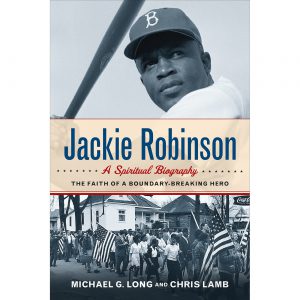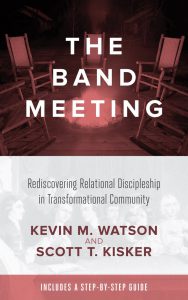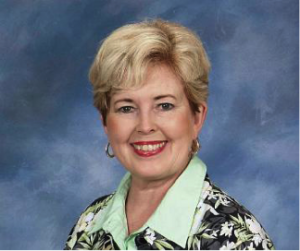
by Steve | Nov 28, 2017 | Magazine, Magazine Articles, Nov-Dec 2017

The Rev. Kenneth Levingston of Jones Memorial United Methodist Church in Houston addressed the WCA event. Photo by Steve Beard.
By Sam Hodges-
The Rev. Kenneth Levingston used his pulpit time before the Wesleyan Covenant Association to compare The United Methodist Church to the valley of the dry bones, as described in Ezekiel. Tough talk, but Levingston held out hope.
“If God can move by his spirit, and make dead bones dance, then God can move by the same spirit and call a dead denomination to dance again!” thundered Levingston, pastor of Houston’s Jones Memorial United Methodist Church. “He can make it shake, rattle, and roll again!”
The Wesleyan Covenant Association’s third public gathering, held October 14 at The Woodlands United Methodist Church near Houston, offered lots of stirring preaching and no indication of what the evangelical group’s next move might be in trying to shape the denomination’s future. The Commission on a Way Forward is to issue an interim report to the Council of Bishops in November, suggesting possible structural changes that might allow the denomination to hold together despite deep divisions over how accepting to be of homosexuality.
So, Wesleyan Covenant Association leaders — who issued no statement at this gathering, though they did during their first — admit that in some ways they’re on hold. “We’re like the rest of the church right now,” said the Rev. Jeff Greenway, chair of the association leadership council. “We’re in a place of waiting to see what the commission is going to bring forward.”
The association’s leadership council met at length on October 13, but the association’s president said even that session was void of detailed strategizing. “Depending on what comes out, we will be ready for what unfolds, but we don’t have any specific plans that have been worked on and that are mapped out,” said the Rev. Keith Boyette, the association’s president.
The association formed last year as an organization of United Methodist clergy, laity, and churches committed to what it describes as an orthodox understanding of Wesleyan Christian faith. Unlike some other advocacy groups within the church, it charges membership dues.
The group also holds that marriage should be for “the uniting of one man and one woman in a single, exclusive union,” and has complained that Bishop Karen Oliveto, who is married to another woman, continues to serve despite church law restrictions against gay clergy.
Since its organization after the 2016 General Conference, the association has grown to 2,500 individual, dues-paying members, and about 200 membership churches, representing some 100,000 United Methodists around the world, Boyette said. The meeting at The Woodlands United Methodist attracted a few hundred people, but Boyette said simulcasts to 64 U.S. sites brought total attendance to about 2,300. He added that the association would continue to use technology to reach local churches.
At the October 14 gathering, association leaders introduced a book, A Firm Foundation: Hope and Vision for a New Methodist Future, and an app as resources for small groups. “We want to empower people at the local church level,” Boyette said. “We want (the association) to grow from the bottom up.”
The association also welcomed to its leadership council the first international members, from Africa and the Philippines. One of them, the Rev. Forbes Matonga of Zimbabwe, preached at the gathering.
The Rev. Jerry Kulah of Liberia, another new council member, praised the theological focus of the association and leaders’ embrace of global perspectives. “Africans do not want to be accommodated,” Kulah said in an interview. “Africans want to be part of the solution.”
Among the gathering’s preachers was retired Bishop Robert Hayes Jr., now bishop-in-residence at The Woodlands church. Texas Conference Bishop Scott Jones attended, but did not speak. “My role as bishop is to remain connected to as many different groups as possible, to help improve the quality of conversation about the future of our denomination,” Jones said.

Jennifer Cowart addresses the WCA event in Houston. Photo by Steve Beard.
The day was dominated by preaching, with speaker after speaker calling for a return to an evangelistic focus. “People need to take an unapologetic stand for Christ, for biblical standards, always erring on the side of grace and love,” said Jennifer Cowart, executive pastor of Harvest Church, a United Methodist congregation in Warner Robins, Georgia.
The Rev. Shane Bishop, pastor of Christ (United Methodist) Church in Fairview Heights, Illinois, noted the long decline of membership and attendance in The United Methodist Church in the United States, as well as internal divisions. “I know there’s a lot of denominational uncertainty right now,” he said. “But there’s not one thing happening in The United Methodist Church that can keep you and me from telling people about Jesus Christ.”
Without specific reference to the status of LGBTQ people in the church, speakers emphasized the authority of the Bible over the values of contemporary culture.
The Rev. Rob Renfroe, pastor of discipleship at The Woodlands United Methodist and president of the unofficial evangelical advocacy group Good News, said United Methodists should worry about being “on the right side of eternity” rather than the right side of history.
Greenway described the gathering as “a family reunion for folks who are like-minded and warm-hearted by Jesus in the orthodox Wesleyan tradition.” But the question about how or whether The United Methodist Church can avoid splitting was always in the background, and sometimes came to the fore.
Boyette noted in his remarks the recent formation of two more groups, the “Uniting Methodists” and the “United Methodist Association of Retired Clergy.” Both seek to influence the debate leading up to a special General Conference in 2019. And that’s fine, Boyette asserted. “These are people of good will that have different visions for the church,” he said in an interview. “It helps the church to really have clarity in what we’re facing.”
Sam Hodges, a United Methodist News Service writer, lives in Dallas.

by Steve | Nov 28, 2017 | Magazine, Magazine Articles, Nov-Dec 2017

By Scott McDermott-
How is your prayer life? Really? I am not referring to how much you pray, or even how long you pray. For all too many of us that seems to be where our minds go when we are asked such a question. So, let me phrase it another way. Do you find your prayer life compelling? Are you drawn to it each day because of the life it brings to you? You see, God never intended our commitment to prayer to be driven by obligation. God intended our commitment to prayer to be driven by something deeper and something richer.
I spent a number of years praying from the place of obligation rather than that richer, more meaningful place. And yes, I was faithful to it. I seldom, if ever, missed my daily prayer time. I even prayed for a couple of hours each day. Now, that’s commitment! If anyone ever asked me if my devotional time was intact, I could answer with a resounding, “Yes!” There was just one thing wrong. My prayer wasn’t compelling and it wasn’t life-giving. But one day that began to change. How? Well that answer is found in the response Jesus gave his disciples when they asked him, “Lord, teach us to pray” (Luke 11:1).
While Jesus’ disciples were undoubtedly looking for a model prayer much like John the Baptist had provided his disciples,
Jesus provided so much more. Sometimes one word can make all the difference in a conversation and that is certainly the case here. From the very first word of his instruction, Jesus interjects an important thought that forever changes how we typically think of prayer. What is that word? “Father.” In other words, prayer is about relationship.
Recognizing that prayer was about relationship opened up a whole new world for me. When prayer is about relationship, then prayer is not just about what I say to God, it is also about what God says to me. Day after day I had gone to God with my list in hand carrying my heavy burdens, asking God to move on my behalf, but not once did I ever pause to listen for a response about my request. That one word made all the difference.
It’s been over 30 years since I made this significant change in my prayer time. Each day I go to my prayer time just as I had done so faithfully years before, but now I begin my time in prayer by focusing on his presence and not problems. As I enter God’s presence each day, I usually begin by saying: “God it’s me. I have just come to be with you.” And I pause. Some days the pause is longer than others, but it doesn’t matter. I am setting my heart on the pursuit of the face of God. Time after time God’s presence never fails to show up in the stillness. It was there that I learned an important lesson about prayer. If prayer is about relationship, then prayer is also about presence. From that place of presence, God began to speak to me gently and powerfully. My prayer life has been transformed. Prayer has become life giving. Prayer is never about how long you pray, it’s about touching God’s presence every day.
So what does that mean for how I pray? Well, over the years I have developed a simple guide to help me practice God’s presence when I pray. I call it, “Fill your Prayer with Praise.” Each letter of Praise stands for something I want to remember when I pray. Praise, Repent, Ask, Intercede, Silence, Expect. Some days I make it through all six categories. Other days I just make it through one. It doesn’t matter. I just allow God’s presence to guide me.
Praise: I usually have a journal in hand during my prayer time (for me it is now all electronic). As I begin my time of prayer, I start by recording three ways I have seen God’s hand at work in my life the day before. I look for the moments I have sensed his presence or experienced his encouragement. I will make note of how God has used me the day before or how I have seen his presence at work in others. I cannot tell you how much I have gained from this. It has proven to be quite an encouragement to have my own written log of God’s faithfulness. If there is one important lesson I have learned from this, it is that God is with me no matter what, and I have proven it. We all have those difficult seasons in our lives, an illness, heartbreak, a sorrow, an unexpected tragedy. But I discovered that even in my darkest days I found his presence at work.
Repent: Here, I ask God to examine my life and to speak to me about the things he wants to change within me. I sometimes pray: “Lord show me where my heart is today?” I pause and listen. Sometimes there are people I need to forgive. Other times God makes me aware of my need for forgiveness. Yes it is convicting, but it is also healing and refreshing. At other times God uses this time simply to speak into the areas of my life he still wants to change. Despite what God does in this time, forgiveness, rebuke, or instruction, I am frequently reminded of God’s holiness and my call to live a holy life before him.
Ask: At this point I spend time praying over my life. God taught me a prayer to pray that he never fails to answer: “God show me how to pray for myself today.” I received so much from that little prayer. When I ask that of my Father, I just pause and wait. I can hardly believe the things that come to my mind in response to that prayer.

Intercede: This is where I pray for others. Here I pray for family, friends, coworkers, and the church God has given me to pastor. I sometimes write down some ongoing concerns so I don’t forget them, but mostly I just ask God to guide me in my prayer. But I pray for others just as I pray for myself. “Lord, show me how to pray for my wife today.” “Lord, show me how to pray for family today.” “Lord show me how to pray over my church today.” Once again, God my Father helps me as I pray.
Silence: As you see, I have already filled much of my prayer time with listening anyway. But at this point, I allow stillness tobe my place of prayer. What happens there? Well that is just it. You never know. There are days when it is just soaking in God’s presence. There aren’t any great visions or revelations. Some days I can’t say I even hear God’s still small voice. But it is okay. I am just here “to be with God.” This moment has become one of my favorite moments in my daily prayer. It is as if everything within me, my successes and my failures, my joys and my sorrows must all pause and bow before the King of Kings. And yes there are times when God clearly speaks to me. When He does, I write down what I am discerning.
Expect: I close my prayer time expecting that God will respond. This becomes my launching out point for my day. How will God answer my prayers? Where will I encounter him?
Scott McDermott is the Lead Pastor at The Crossing in Washington Crossing, Pennsylvania. www.drscottmcdermott.com.

by Steve | Nov 28, 2017 | Magazine, Magazine Articles, Nov-Dec 2017

John Wesley: An Album of Portraits and Engravings collected by Kenneth Cain Kinghorn. A deeply valued friend of Good News, Kinghorn is the recently deceased professor of history from Asbury Theological Seminary. Like Kinghorn’s other books, this will be of lasting value to all Christians, especially the innumerable heirs to Wesley’s theology and ministry. This book is the definitive collection of his portraits and engravings.

Empathy for the Devil: Finding Ourselves in the Villains of the Bible by JR Forasteros (IVP). Finally, someone has creatively profiled notorious Bible bad guys (and girls) such as Cain, Delilah, Jezebel, Herod the Great, Herodias, Judas, and Satan. Go ahead and ask the big question: Why does evil exist? But then follow that up with the more important question: Why does evil exist in me?
 Bob Dylan: A Spiritual Life by Scott M. Marshall (WND Books). Marshall has marvelously drawn a bead on the enigmatic artistic and spiritual journey, most recently the winner of 2016 Nobel Prize in literature. This volume is faithful to the task in honestly tracking Dylan’s pursuit of redemption. Also, keep your eye out for Trouble No More – The Bootleg Series Vol. 13/ 1979-1981, an exploration of Dylan’s “gospel years” and the three resulting albums: Slow Train Coming, Saved, and Shot of Love.
Bob Dylan: A Spiritual Life by Scott M. Marshall (WND Books). Marshall has marvelously drawn a bead on the enigmatic artistic and spiritual journey, most recently the winner of 2016 Nobel Prize in literature. This volume is faithful to the task in honestly tracking Dylan’s pursuit of redemption. Also, keep your eye out for Trouble No More – The Bootleg Series Vol. 13/ 1979-1981, an exploration of Dylan’s “gospel years” and the three resulting albums: Slow Train Coming, Saved, and Shot of Love.

Seven Women: And the Secret of their Greatness by Eric Metaxas (Thomas Nelson). Metaxas profiles seven fascinating women who shaped the course of history through their faith and character. Everyone can benefit from learning about the lives of Joan of Arc, Susanna Wesley, Hannah More, Sister Maria of Paris, Corrie ten Boom, Rosa Parks, and Mother Teresa. All of these remarkable women followed God’s call upon their lives and made a profound difference with their discipleship.
 Jackie Robinson: A Spiritual Biography. The Faith of a Boundary Breaking Hero by Michael G. Long and Chris Lamb (WJK Press). The rock-solid faith of Jackie Robinson, a Methodist, was tested and challenged at every facet of his remarkable life as a beloved and tormented athlete who shattered racial barriers in major league baseball.
Jackie Robinson: A Spiritual Biography. The Faith of a Boundary Breaking Hero by Michael G. Long and Chris Lamb (WJK Press). The rock-solid faith of Jackie Robinson, a Methodist, was tested and challenged at every facet of his remarkable life as a beloved and tormented athlete who shattered racial barriers in major league baseball.

The Band Meeting: Rediscovering Relational Discipleship Through Transformational Community by Kevin M. Watson and Scott T. Kisker (Seedbed). If your church is needing to rethink your small group approach with an eye toward tapping into the richness of the early Methodist tradition of spiritual formation, Watson and Kisker have provided a perfect blueprint. This volume helps lay and clergy alike to understand John Wesley’s approach to discipleship.

by Steve | Nov 28, 2017 | Magazine, Magazine Articles, Nov-Dec 2017

Jim Ramsey
By Jim M. Ramsay-
The nation of Liberia has had its share of challenges in recent decades. The brutal civil war led by Charles Taylor and his subsequent rule dominated the 1990s until he was removed in 2003. More than 300,000 Liberians lost their lives during those years. The nation was still trying to rebuild when it again was in the headlines in 2014 in the wake of the Ebola outbreak. Ebola claimed the lives of nearly 5,000 people and devastated the country and its social institutions.
One of those affected by the Ebola outbreak was the family of the Rev. Isaac Wheigar. Isaac and his wife, Precious, had four living children. A son had been lost to sickle cell anemia as a baby before the condition had been identified in the family. Two others of their children were also diagnosed with the condition, which can be managed with medical care. In August 2014 their eldest son, Ike, experienced an episode that required hospital care, but the hospitals were closed due to Ebola and Ike tragically passed away at only 17 years old before he could receive treatment that normally would have been readily available. Even as Isaac and Precious grieved Ike’s death, they were deeply concerned for their eight-year old daughter, Yeato, who also had the sickle cell condition.
Having served 10 years as superintendent of the Wesleyan Church in Liberia, in 2012 Isaac was selected to be general secretary of the Association of Evangelicals of Liberia. In this role, his team had developed a vision entitled EXPO Liberia 2020 to plant 10,000 churches by the year 2020. The vision invited all church traditions to join the effort through church multiplication. But then came Ebola and their personal loss and the vision had to be set aside.
Through a miraculous series of divine appointments with people who were in Liberia to assist during the Ebola crisis, the Wheigars were invited to come to the United States for Yeato to receive treatment at the Emory Medical Center. While in Atlanta, Isaac and Precious were introduced to the staff of TMS Global where Isaac now serves as a consultant on African partnerships. Isaac’s work in leading an indigenous church association and developing a national church planting movement have made him an expert in addressing issues of unhealthy dependency and sustainability in church growth.
After two years of getting his family stabilized in the Atlanta area, Isaac’s and Precious’s gaze is again on Liberia. While he is grateful for the care Yeato receives at Emory, he is eager to re-engage the vision for church planting and development in Liberia, now needed more than ever. He has put together a roadmap for moving forward. The effort will begin in Liberia, but move across borders into Ivory Coast, Sierra Leone, and Guinea. This area, also known as the Mano River region, includes many areas that have had limited access to the gospel. The vision is to do church planting through church multiplication.
Working with Isaac is consistent with TMS Global’s desire to work alongside capable, indigenous leaders. We believe that this is a kairos opportunity to impact an area where there is great need and great opportunity for kingdom engagement. It is an opportunity for churches in the United States through prayer, support, and onsite visits to be part of a vision that is locally developed, well-led and long-lasting, and which will impact the region deeply spiritually, socially, and physically.
In 2006, The New York Times ran an article entitled “A Master Plan Drawn in Blood.” The article described the brutal plan of Charles Taylor that began with a small band of guerilla fighters who, using terror, recruited increasing numbers toward his vision to destabilize and brutalize the entire Mano River region. Isaac said, “Here is a man serving evil using the blood of men. He succeeded for a time. What if we drew up a plan to reverse this evil vision, still drawn in blood, but drawn using the blood of the Lamb? We will recruit people to build families instead of destroying them, to educate children instead of their being child soldiers, to use the blood of the Lamb to reverse the kingdom of darkness.”
Jim Ramsay is the vice president for global engagement at TMS Global. To learn more about Isaac’s vision, Jim can be reached at jramsay@tms-global.org

by Steve | Nov 28, 2017 | Magazine, Magazine Articles, Nov-Dec 2017
 By B.J. Funk-
By B.J. Funk-
God came to earth wrapped in an ordinary package. His birthing room had a dirt floor, his crib contained remnants of dried animal feed, and instead of “Lullaby” being played over a hospital loud speaker at the birth of a child, there was a mixed chorus of animals braying loudly, possibly over the intrusion of this couple and their baby.
Here is a simple illustration of how that happened. In that land called heaven, the Son, Jesus, stood up one day, gave the Father and the Spirit a good-bye hug, and made a bold, gigantic decision, all in obedience to the Father. The Son stepped off the glittering streets, outside of the abundance of rainbow colors that dripped wonderful smells of beauty, and became a tiny seed inside the womb of a young woman. The seed grew into a baby who later moved into the sin, dirt, and humanity of earth. Upon first opening his eyes in his new home, he saw darkness. He took his first breath and smelled stench. He opened his ears and heard animals screeching.
And while human life would become painfully ugly and hurtful on earth, the Son brought with him a manual of instructions handed to him by his Father, a manual that contained many promises. Best of all was the promise that his relationship with God and the Spirit would be unbroken. He clung to that knowledge and counted on this relationship to remain secure. This would be the only way that he would have strength to keep going, even when His physical body knew complete exhaustion, rejection, and eventually murder.
On an ordinary night in an ordinary town in an ordinary and rough cave used for a stable, surrounded by ordinary animals, and two very ordinary parents, God became man. As Eugene Peterson writes in The Message, he “moved into our neighborhood.”
Before the shepherds were given this celestial message by the angels, those shepherds stood on a hillside, dressed in quite ordinary clothes, and would now be sent to find a baby that was anything but ordinary.
At first there was a huge orchestra of voices appearing in the heavens exclaiming in rich voices some very unordinary news. No wonder the shepherds were afraid. Shepherds were poor and uneducated, and because they lived among the sheep, they carried an odor everywhere they went. For that reason, they were not allowed in the Temples. They weren’t allowed in the synagogues. But they would be allowed at the birth of Jesus. This astounding fact gives me a deeper look into the God I serve: He is most comfortable around the ordinary, and that should make the ordinary comfortable around Him.
Jesus rarely comes where we expect. He appears where we least expect Him, and in the most illogical situations. On this very ordinary day, God sent a message to ordinary people like you and me. His message was and is, “I love the ordinary. No matter what your sins or transgressions in 2017 or before, I love you and I forgive you. I reach out especially to the poor, the hurting, the lonely, the unsuccessful, and I say, ‘Come unto me all ye who are burdened and heavy laden. I came to bring you peace.’”
Today, because of God’s extraordinary reach to ordinary people, you and I are caught up in the wonder of seeing royalty wrapped in ordinary humanity, lying in a manger and sending this intimate message to you: “I came for the ordinary. I died for the ordinary. Never let anyone make you feel that you are not worthy of my love.”
To make this story even better, Jesus came to set us free from our own wounded natures, promising to help us overcome earth’s descending pull. He even desires a relationship with us, will sprinkle his love all over us, and will promise to stay by our side as we seek holiness above the ordinary. What a beautiful story, made real by the fact that millions of followers testify to their changed lives!
Thanks be to God. Because of Jesus, ordinary people like us will forever be wrapped in royalty.

by Steve | Sep 15, 2017 | Magazine, Magazine Articles, September/October 2017

Rev. Rob Renfroe
By Rob Renfroe-
If you were to summarize one rather stark section of the Apostle Paul’s message to the Corinthians, it might be: God loves you and has a dangerous plan for your life.
He reminds the congregation that he has “been in prison more frequently, been flogged more severely, and been exposed to death again and again.” Five times he was whipped severely, three times he was beaten with rods, once he was pelted with rocks, shipwrecked three times, and spent a night and day drifting in the open sea. “I have been in danger from rivers, in danger from bandits, in danger from my fellow Jews, in danger from Gentiles; in danger in the city, in danger in the country, in danger at sea; and in danger from false believers,” Paul reminds them. “I have known hunger and thirst and have often gone without food; I have been cold and naked” (2 Corinthians 11:23-27). Not exactly a sales pitch for church work or following Jesus.
Two thousand years later, however, we have churches and pastors, liberal and conservative, whose primary message is “God wants to make you happy.” They might not put it in so many words, but they rarely speak of sin and repentance, or counting the cost of discipleship, or crucifying our desires so we can live fully for Christ. Instead, they talk about a God who wants to bless us and favor us – and very often the signs of his favor are presented as material prosperity and professional success. They preach that God wants to give us the desires of our hearts but they fail to mention that first God wants to change the desires of our hearts.
Years ago I read these lines: “In the beginning God made man in his own image. And, ever since, we’ve tried to return the favor.”
Every one of us has this tendency. Often without being aware of what we are doing, we create for ourselves a god who wants for us exactly what we want for us; who proclaims what’s right and moral is exactly what we think is right and moral; whose main goal for our lives is that we be happy and content.
We live in an era of designer jeans, designer drugs, and designer gods. We decide the kind of god we are comfortable with and we feel free to re-create the God of the Bible into our own image.
You’ve heard people say, “The God I believe in would never…” and they complete the sentence with what they would never do. Or “the God I worship is…” and they list the traits they would like to see in a deity. Maybe you’ve even said such things yourself. Our sinful, egocentric natures will always tempt us to remake God so that he is no longer above us, challenging our beliefs, our morals, or our actions. Instead, he becomes one of us, only kinder, more compassionate, and more forgiving.
Instead of challenging our tendency to idolatry, much of present day American Christianity promotes it. Here’s a quote from one of the best-selling Christian books of all time, written by one of the best known TV pastors in the world just a few years ago.
“God wants to make your life easier. He wants to assist you, to promote you, to give you advantages. He wants you to have preferential treatment. Consequently, I’ve come to expect to be treated differently. God has crowned me with favor, therefore, I can expect preferential treatment.”
How do you extract that message from a first-century itinerant preacher who had nowhere to lay his head, who was persecuted throughout his ministry, and was scourged with 39 lashes and then crucified? How do you turn “the man of sorrows” into a 21st century prophet of easy living, preferential treatment, and material gain?
Jesus said, “If anyone would come after me, let him take up his cross and deny himself.” How do you turn him into someone whose main goal is to make your life easier and give you advantages that others don’t enjoy?
You begin with a theology which is so shallow, so worldly, and so self-centered that you believe God’s great goal for you is to be happy in this world. You define the good life, the blessed life, in the same way as does our culture – material abundance, physical comforts, and preferential treatment.
Do that and you have transformed the God you were created to worship into a god who worships you. That god may not be graven out of stone or wood or metal. But that god is not the God of the Bible. That god is an idol.
The Bible is clear that God’s primary goal for us is that we become like Jesus, “conformed to his image.” That’s simply another way of saying that God’s will for us is that we become holy because there is no better example of holiness than the character and the life of Jesus.
Becoming like Jesus means we must put the Father’s will above our own even if the Father’s will troubles our souls and causes us to sweat blood. It means that we must forgive those who crucify us and be patient with those who fail us. Rather than expecting preferential treatment, being like Jesus requires that we humble ourselves, give up places of honor and lift others up. Being like Jesus is not a call to a life that is easy but to a life that is difficult and self-denying.
Two gospels – one promises happiness, the other calls us to holiness. Can’t you have both happiness and holiness? No, at least not all the time. Taking up a cross, dying to self, loving difficult people, putting others ahead of ourselves – in the moment none of those endeavors will make us happy. But they will make us like Jesus. And over time, that will bring us joy.
The gospel of happiness sells much better than the gospel of holiness. It allows egocentric, materialistic people to stay the way they are as long as they will say, “I accept Jesus.” It doesn’t require that we give generously to the poor or confront our prejudices. It doesn’t produce feelings of conviction, much less guilt, when we sin. It doesn’t demand that we change our priorities or live differently from the world as long as we remember to thank God for our blessings. It doesn’t necessitate that we do what’s hard or costly.
You’ll find this gospel of happiness proclaimed in progressive and traditional churches. In both, you’ll hear the message, “God loves you. Stay the way you are; no need to change your lifestyle or be challenged by the radical claims of Christ.” It’s a great way to keep the customers happy. But it’s a terrible way to make disciples.
Rob Renfroe is the president and publisher of Good News.








 Bob Dylan: A Spiritual Life by Scott M. Marshall (WND Books). Marshall has marvelously drawn a bead on the enigmatic artistic and spiritual journey, most recently the winner of 2016 Nobel Prize in literature. This volume is faithful to the task in honestly tracking Dylan’s pursuit of redemption. Also, keep your eye out for Trouble No More – The Bootleg Series Vol. 13/ 1979-1981, an exploration of Dylan’s “gospel years” and the three resulting albums: Slow Train Coming, Saved, and Shot of Love.
Bob Dylan: A Spiritual Life by Scott M. Marshall (WND Books). Marshall has marvelously drawn a bead on the enigmatic artistic and spiritual journey, most recently the winner of 2016 Nobel Prize in literature. This volume is faithful to the task in honestly tracking Dylan’s pursuit of redemption. Also, keep your eye out for Trouble No More – The Bootleg Series Vol. 13/ 1979-1981, an exploration of Dylan’s “gospel years” and the three resulting albums: Slow Train Coming, Saved, and Shot of Love.
 Jackie Robinson: A Spiritual Biography. The Faith of a Boundary Breaking Hero by Michael G. Long and Chris Lamb (WJK Press). The rock-solid faith of Jackie Robinson, a Methodist, was tested and challenged at every facet of his remarkable life as a beloved and tormented athlete who shattered racial barriers in major league baseball.
Jackie Robinson: A Spiritual Biography. The Faith of a Boundary Breaking Hero by Michael G. Long and Chris Lamb (WJK Press). The rock-solid faith of Jackie Robinson, a Methodist, was tested and challenged at every facet of his remarkable life as a beloved and tormented athlete who shattered racial barriers in major league baseball. 

 By B.J. Funk-
By B.J. Funk-